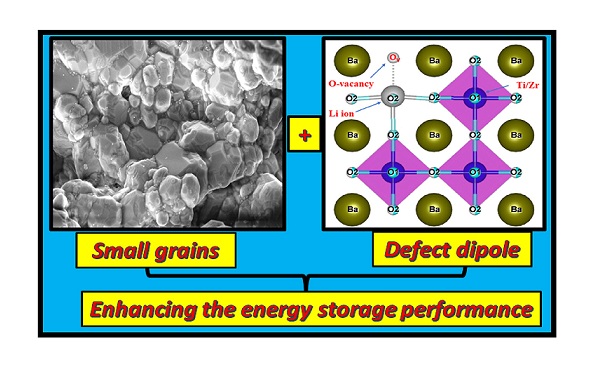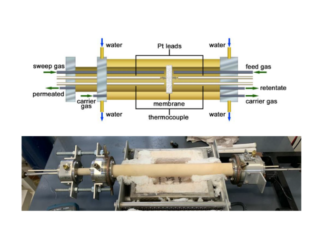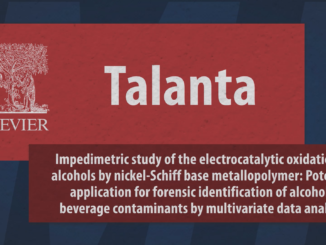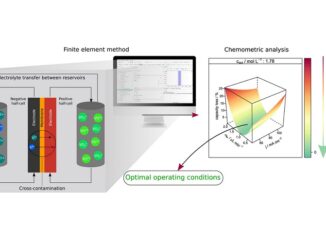
Enhanced energy-storage density of BaTi0.95Zr0.05O3 via generation of defect dipoles upon lithium-doping
Abstract: Researchers seek the most optimal solutions to a worsening crisis and escalating energy demand. In light of this, ferroelectric (FE) ceramics have become increasingly important. In perovskite oxides, defect dipoles can significantly influence the dynamics of oxygen vacancies. The lithium ions were selected as acceptor ions doped Ba site of BaTi0.95Zr0.05O3 (BZT) based ceramics. A systematic investigation of its effect on the structural, dielectric, ferroelectric, and energy storage properties has been conducted. This study shows how to improve the energy storage density and efficiency by creating defect dipoles on the (BZT) host lattice. The obtained results indicate that Li-doping plays an essential role in changing the shape of hysteresis loops. Pinched hysteresis loops with high maximum polarization and small remnant polarization were acquired when the doping content was raised due to increasing the defect dipoles. Following the onset of defect dipoles induced by acceptor ions, the recoverable energy density increased from 0.191 J/cm3 to 0.701 J/cm3. In contrast, the energy storage efficiency increased 12th times compared to pure one, i.e., from 7% to 81%. The BLZT0.08 sample is also exceptionally stable over a range of temperatures and frequencies, making them a good candidate for applications in the field of energy storage. Improving energy storage density and efficiency by inducing defect dipoles in ferroelectric host-lattice may be one of the attractive approaches to developing ferroelectric materials for energy storage applications.
Author(s): Alkathy, M. S.; Rahaman, A.; Mastelaro, V. R.; Milton, F. P.; Zabotto, F. L.; Lente, M. H.; Strabello, A.; Eiras, J. A.
Materials Chemistry and Physics
Published: 15 January 2023
DOI: https://doi.org/10.1016/j.matchemphys.2022.127032
CDMF
The CDMF, hosted at the Federal University of São Carlos (UFSCar), is one of the Research, Innovation and Dissemination Centers (RIDC) supported by the São Paulo State Research Support Foundation (Fapesp), and also receives investment from the National Council Scientific and Technological Development (CNPq), from the National Institute of Science and Technology of Materials in Nanotechnology (INCTMN).




